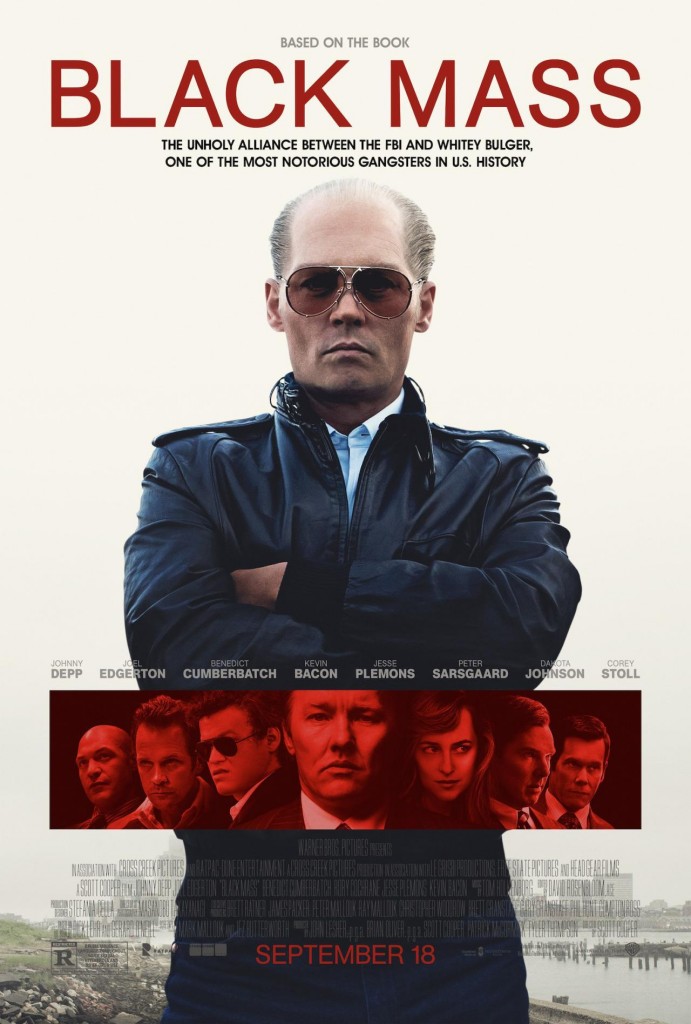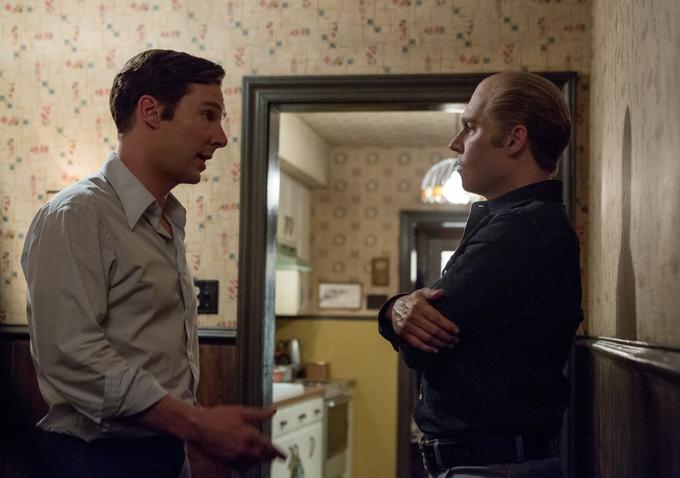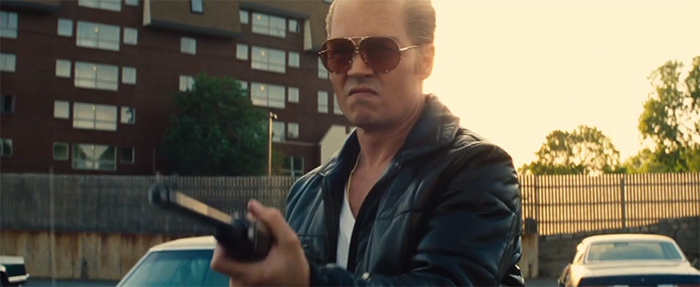People often forget that Johnny Depp is actually a pretty nuanced actor when he wants to be, but these days he’s starting to become typecast as the quirky but lovable eccentric. When you think of his overall body of work, roles like Edward Scissorhands and the Mad Hatter are more likely to come to mind than his portrayal of Joe Pistone in Donnie Brasco. And as much as I love Jack Sparrow, his turn as James “Whitey” Bulger in the new biopic Black Mass is both refreshing to see and mesmerizing- as well as uncomfortable.
Once again he’s spent a few hours in the makeup chair to resemble Bulger, but beyond that he brilliantly captures his amorality and brutality. At times he resembles a gargoyle come to life, with his eyes devoid of any compassion and a Bas-tahn inflected raspy voice that’s always controlled yet threatening. But more than simply a study in uncompromising evil, the film also works as a story of the power of friendship gone horribly awry.
Directed by Scott Cooper and written by Jez Butterworth and Mark Mallouk, it covers Whitey’s peak years alongside his relationship with the FBI, and Special Agent John Connolly’s machiavellian rise and fall. His arc serves as a good counterbalance to Bulger’s rampage, seduced with the rush of power he derives from his relationship with the Winter Hill gang while Bulger reluctantly swallows his pride and uses his connections to further tighten his grip on Boston.
A native son and good friend of not only Jimmy but his brother and Massachusetts senator Billy Bulger (Benedict Cumberbatch, working his best American accent), Connolly turns the other cheek away from the crimes of the Irish-run Winter Hillers and mostly focuses on taking down mafia kingpins the Angiulo brothers. He offers his childhood pal protection from them in exchange for information, which he eventually but begrudgingly accepts.
The scenes with Jimmy’s family create just enough sympathy for the audience to not necessarily forgive him, but to at least understand his state of mind. When his son becomes fatally ill despite the best efforts of his wife (Dakota Johnson), what was once an awkward relationship with the feds gradually spirals out of control. Instead of providing reliable intel, Bulger increases his power and the body count begins to spike, raising the ire of Connolly’s superior Charles McGuire (Kevin Bacon). By the time they actually do start to reap rewards, both Bulger’s gang and the FBI agents are too deep down the rabbit hole.
While there are quite a few nods to some of Martin Scorcese’s work, most notably the ferocity of the violence over an era-apt soundtrack, Cooper generally directs Black Mass in a far more restrained fashion than mob films like Goodfellas or Casino. Depp’s Bulger almost operates like a killer in a slasher film as much as he does a deal-making gangster, and the performances of the supporting cast also reflects this approach.
W. Earl Brown is somewhat understated as hitman Johnny Martorano, yet he speaks volumes about Bulger and their relationship without much exposition. Cumberbatch’s Billy captures a dignified unease over his brotherly ties, and Joel Edgerton as Connolly acts like a child with his hand caught in the cookie jar when his department becomes the subject of an internal investigation. In one of the more chilling scenes in the film, Connolly’s wife (Julianne Nicholson) has an encounter with Bulger that all but confirms the suspicions she held about her husband’s ties to him.
Oddly enough, the film’s greatest shortcoming may be its relatively short length. Two hours isn’t exactly enough time to cover the full spectrum of Bulger’s reign and eventual undoing, but Cooper’s direction is sharp and the acting is subtle but impressive, so I actually wouldn’t have minded twenty more minutes on the runtime- I especially wanted a closer look into Jimmy and Billy’s relationship. I’ll still gladly recommend Black Mass despite that, because I’d rather be left wanting more of a great Depp performance than seeing him stick within a comfort zone.



